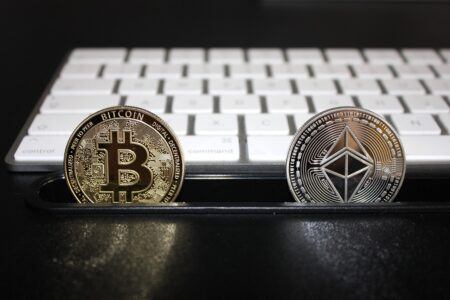According to the Center for Disease Control and Prevention (CDC), every year one out of six Americans – or 48 million people – get sick from germs in food. Out of those millions, about 128,000 are hospitalized and 3,000 die. The germs behind the food contamination include listeria, salmonella, E. coli and cyclospora.
The U.S. Food and Drug Administration is currently dealing with an E. coli outbreak found on contaminated romaine lettuce. The FDA says forty-three people in twelve states have been infected with the outbreak strain since October. Although the outbreak has now been narrowed down to six counties in California, it has taken weeks to determine the source. The problem of how to quickly trace the origin of contaminated food has pushed the FDA to pursue blockchain-based solutions.
Dr. Laura Gieraltowski, head of the CDC’s foodborne outbreak response team, told NBC the current process is difficult and time-consuming. “Grocery stores might not keep the box that has the labels from the distribution center was or where the grower was,” stated Dr. Gieraltowski. This contributes to an overall lack of records making it difficult to track where the food came from.
“We are in a challenging position in that we have not been able to fully isolate it to one specific grower or region to issue a mandatory recall,” FDA commissioner Dr. Scott Gottlieb told NBC News. Gottlieb hopes the FDA’s recent hiring of Frank Yiannas, Walmart’s vice president of food safety, as deputy commissioner for foods and veterinary medicine, will help push the agency towards blockchain-based solutions to tracking food contamination. “One of his specific areas of expertise is the development of blockchain technology for track and trace.”
A blockchain could serve as a ledger to track every head of lettuce, or box of fruit, from farm to store to restaurant to consumer. “We’d like to link the outbreak back to a specific grower, a specific farm, a specific distributor,” Gottlieb said.
NBC notes that Walmart itself is working on getting its food suppliers to adopt IBM’s computer technology so they can implement blockchain solutions. If this solution works for Walmart and other food producers future outbreaks of germs might be dealt with more quickly and efficiently. Food products would be labeled and scanned through their entire journey. In the event of an outbreak, officials would be able to locate the source of contamination and warn consumers faster.








